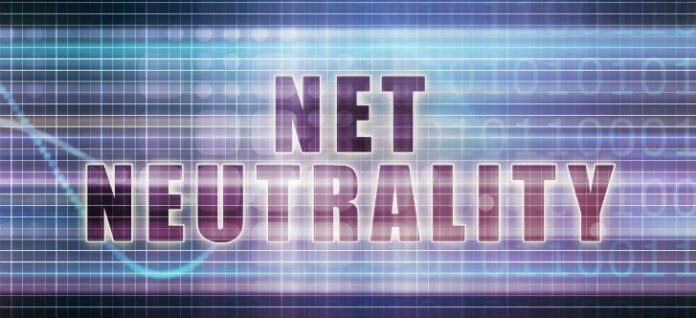Title II and net neutrality
In my capacity as a correspondent for RCR Wireless News and a resident of the Washington, D.C., area, I often write about wireless telecom policy. Wireless policy is a fascinating and complex subject, especially when viewed in the greater historical context – looking at how telegraph, telephone, radio and television helped to shape this country – and how each technology was shaped by policies and regulations laid down in Washington.
Somewhat more distasteful than policy, however, is the issue of wireless politics, another subject I often have to cover. Many people outside the beltway bubble ask me, “What’s the difference between policy and politics? It’s all a bunch of garbage, right?”
Well, not exactly. Policy is what happens when well-meaning intelligent adults sit down behind closed doors and craft a long-lasting plan of action and regulatory scheme that will not only outlast them but can be used by the next generation of lawmakers as the basis for the issues of their day.
Title II and net neutrality is a good example of this: By clarifying the Internet as a public utility, the Federal Communications Commission has defined it as a product that is essential to the standard of living in this nation and can be regulated and overseen by the federal government for the public good.
However, the debate cropping up around net neutrality since the FCC ruling is exactly what happens when politics gets involved. In my experience, politics has all the grace and forbearance of a horde of unsupervised 3-year-olds left alone with buckets of paint and marinara sauce. The results are a mess that can only be described as catastrophic and lacking in any substance.
Of course the wireless technology I write about is partially to blame for this widening gulf between politics and policy. Where lawmakers once engaged in tenacious and angry, but ultimately fruitful, debate, now everything they say or do is instantly recorded via Twitter, Vine and CSPAN for posterity or, at least, for the next election. Getting a politician to utter anything publicly that isn’t full of poll-tested language and buzzwords meant to appeal to the base is nigh impossible.
A good example is the often derided, mocked or lionized – depending on your political stripe – junior Senator from my native Texas. Last November Sen. Ted Cruz, who now chairs the Subcommittee on Science and Space and is often talked about as a possible 2016 candidate for the big chair; tweeted the following statement:
“Net Neutrality” is Obamacare for the Internet; the Internet should not operate at the speed of government.”
What exactly he meant by that and how Title II is in any way like Obamacare other than it originated from the federal government is unclear. You’ll note the use of vital buzzwords, “Obamacare” and “government,” two things that likely Cruz supporters will immediately associate as bad.
Of course once that association starts, fully half of Washington’s elected officials and its vast arms of special interests hop on the bandwagon. So the next thing we’ll see is that Title II has been reduced from a thoughtfully crafted piece of regulation based on decades of precedent and careful study to a job-killing tax and spend government quagmire.
Once one side makes an issue out to be one thing, the other side runs the complete opposite direction. After the FCC vote Nancy Pelosi released a statement that read in part:
“The power of the Internet has always rested in its role as a level playing field where success is founded on the best ideas, not the deepest pockets. We finally have strong rules that protect consumers and innovators and will safeguard fair, fast, equal and competitive access to the Internet. These net neutrality standards will ensure that everyone has access to all the Internet can offer without gatekeepers influencing content, picking winners, or blocking the way.”
Please note the use of buzzwords, “gatekeepers” (corporations) and “picking winners” (war on middle class). Likely Pelosi voters and donors will read this as net neutrality standing up to the corporate boogeyman and making America a fairer freer place.
So while one side says net neutrality is the worst thing since (insert horribly executed job-killing program here), the other now says net neutrality is the best thing since (insert great social or economic salvation). With such high-flung rhetoric over an issue so few people really understand let alone care about, is it any wonder that only 20% of my generation even bothers to show up and vote most of the time?
Meanwhile, the wheels of Washington grind on drowning out the eerie sound of apathy outside the beltway bubble.
Jeff Hawn was born in 1991 and represents the “millennial generation,” the people who have spent their entire lives wired and wireless. His adult life has revolved around cellphones, the Internet, video chat and Google. Hawn has a degree in international relations from American University, and has lived and traveled extensively throughout Europe and Russia. He represents the most valuable, but most discerning, market for wireless companies: The people who have never lived without their products, but are fickle and flighty in their loyalty to one company or product. He’ll be sharing his views – and to a certain extent the views of his generation – with RCR Wireless News readers, hoping to bridge the generational divide and let the decision makers know what’s on the mind of this demographic.

